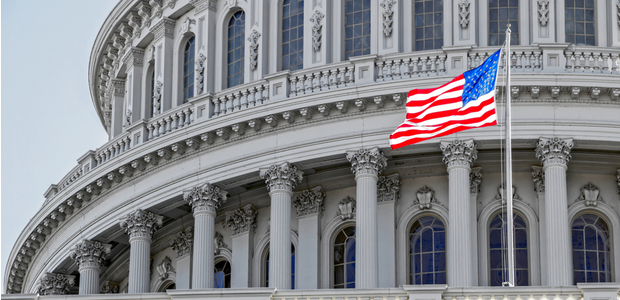Is another shutdown coming?
Congress is facing another appropriations deadline Feb. 8, and a fifth stopgap funding bill is likely necessary, assuming it can pass.

Congress is facing another appropriations deadline Feb. 8, and a fifth stopgap funding bill is likely necessary, assuming it can pass.
House Republicans plan to introduce a short-term continuing resolution early this week to fund the government through March 22, while lawmakers continue work on a comprehensive immigration deal and a budget for the remainder of fiscal year 2018.
Sen. Dick Durbin (D-Ill.), the second ranking Senate Democrat, said on CNN's "State of the Union" program on Feb. 4 that while negotiators were unlikely to reach a deal on immigration issues by the expiration of the current CR funding the government, another short-term spending bill was the probable outcome.
"I don't see a government shutdown coming," said Durbin.
But while Senate Democrats may be ready to deal on the fifth budget extension of fiscal year 2018, many House Republicans appear to have objections.
The conservative House Freedom Caucus, led by Rep. Mark Meadows, may resist such a funding extension, however.
"I don't see the probability of the Freedom Caucus supporting a fifth CR without substantial changes by Feb. 8 unless we see dramatic changes," Meadows told reporters at a Republican retreat in West Virginia.
Defense hawks in the House are reluctant to pass another continuing resolution that does not contain a boost in Pentagon spending to support the 2018 levels approved in the National Defense Authorization Act.
Rep. Mac Thornberry (R-Texas), chairman of the House Armed Services Committee, said, "nobody wants a government shutdown, but we also cannot continue to inflict the damage that CRs inflict on the military."
House Democrats are planning to oppose any stopgap spending bill. But if conservative opposition to the continuing resolution solidifies, it's possible that House leaders will have to try to lure Democratic support with legislative sweeteners.
NEXT STORY: The CDC Is About to Fall Off a Funding Cliff






